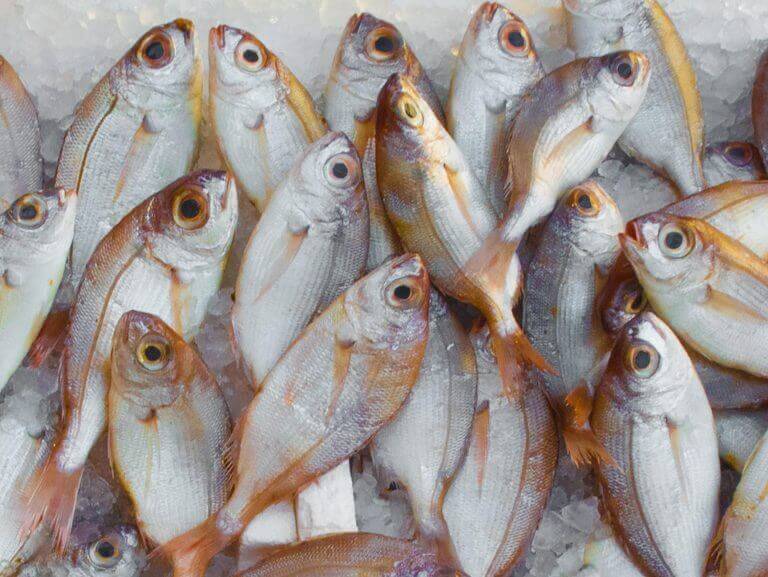Food fraud is the act of mislabeling an edible item in order to sell cheap alternatives for a higher price, and it costs the industry around $35 billion a year. Out of all food items for sale, the easiest victim of fraud is the seafood market. This is not only due to its increasing popularity stirred by the sushi craze, but also do to where Americans receive this massive amount of fish from. Nearly 90%, or 6 billion pounds per year, of the fish eaten annually by Americans is imported, which makes it extremely susceptible to overlooked mislabeling and fraud. This is all according to reports from the Food and Agriculture Organization of the United Nations.
The most recent findings of this fishy food fraud come from the office of the New York Attorney General. Spending the last year conducting thorough research into the subject of fish in the nation, the New York AG’s office bought seafood at 29 supermarket brands across 155 different locations. The list of fish bought included snapper, grouper, cod, wild salmon, halibut, sole, striped bass, and white tuna, assuring that the most commonly bought fish where investigated. The results were less than satisfactory after DNA testing at the Ocean Genome Legacy Center, a laboratory at Northeastern University, found that many were mislabeled. The results including 27.6% of samples sold as wild salmon, 67% of red snapper, and 87.5% of lemon sole, being marked as fish fraud. This report also shows that two-thirds of the entire state’s supermarkets had at least one occurrence of fish mislabeling. That being said, fish fraud is nothing new.
Many citizens who are concerned about the quality of their food, or the quality of their health, may recall back in 2013 when the nonprofit ocean protection group Oceana released their findings concerning the tuna sold in restaurants and grocery stores. Oceana took a nationwide sample and found that 59% of what was categorized as tuna, was, in fact, an unappealing escolar. Escolar is not only a less appetizing alternative to tuna, but it also can lead to some unpleasant health issues such as oily rear leakage. Sadly, this was only the second largest misrepresentation of seafood in the nation, behind the time 87% of snapper was misrepresented as any of six other species. Oceana also conducted one of the biggest seafood fraud investigations from 2010 to 2012 and found that based on U.S. Food and Drug Administration guidelines, 33% of the samples analyzed were mislabeled. Basically, this is no fluke, but as unsettling as this all may sound, there is a light at the end of the tunnel.
The positive in this evidence is that the more research and investigations that are done to prove food and fish fraud, the more aware we become. Through this awareness, legislation will be more inspired than ever to tackle the issue. As an example of the efforts to fight this issue, a U.S. District Judge recently ruled in favor of putting the Seafood Traceability Act into effect on January 1st. This law requires seafood importers of certain species like grouper, swordfish, and tuna to track the origin and species of their catches carefully. The National Fisheries Institute, as well as several seafood companies, challenged this act through a lawsuit arguing that it would be burdensome if enacted, but were swiftly shut down in the name of honorable food distribution. Additionally, NY Attorney General, Barbara Underwood, is asking Supermarkets to take on greater responsibility stating that “Supermarkets are the last line of defense before a phony fish ends up as family dinner, and they have a duty to do more.” Even managing director of food safety management for NSF International Asia-Pacific Peter Bracher is getting involved stating that “Addressing food fraud takes a worldwide coordinated effort between industry, consumer groups, and governmental agencies.”
This latest report from the New York Attorney General’s office about our fishy situation should encourage more consumers, retailers, suppliers, and restaurants to become more proactive in their efforts to prevent and protect against mislabeling and fish fraud that is hurting America dearly. In order solve this problem, it is essential that everyone – from buyers to sellers, to legislators – does their part to report any issues and uphold fair and just laws. Looking towards the future, food fraud laws will be held to a higher standard, while newer more secure laws will be put into place.
To learn more about this case or to access resources on numerous types of fraud, contact Jeff Newman Law today!
